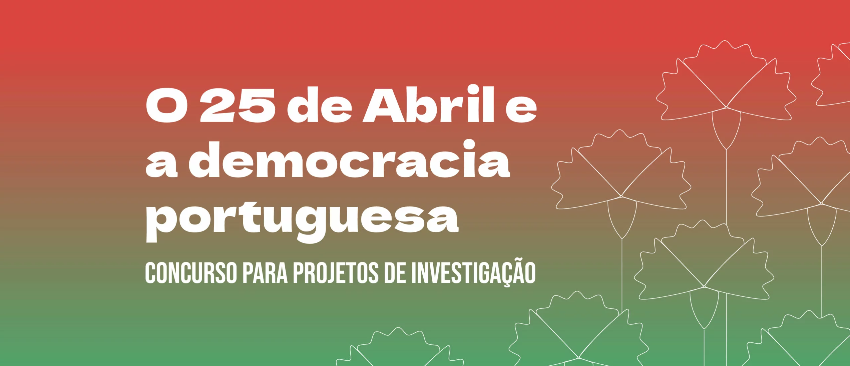The project "Construir a Democracia Participativa – Associações populares", led by researcher Isabel Timóteo, and the project "O 25 de Abril e a democracia portuguesa: visibilidade repercussões no direito à educação e à cidadania para o grupo de minoria de pessoas com deficiência", led by researcher Manuela Sanches-Ferreira, were honoured by the Foundation for Science and Technology (FCT) as part of the "25 April and Portuguese democracy" competition.
Honoured with funding of around €50,000, the projects have the following objectives:
Construir a Democracia Participativa – Associações populares - To contribute to sociological, historical and educational knowledge about Porto's popular associative movement in its relationship with the 25 April revolution and Portuguese democratic consolidation, and specifically about the associative developments and challenges faced by Porto's popular associations created during PREC and in the first years after the approval of the Constitution of the Portuguese Republic. The project is based on three case studies - Universidade Popular do Porto, Associação Nacional dos Deficientes Sinistrados no Trabalho and Associação de Moradores da Lomba - based on the heritage of social and educational intervention developed in the training of Social Educators at the Escola Superior de Educação do Porto. Almost five decades on, these associations are still active and claim the democratic legacy of the April Revolution, which justifies a detailed study of their history and associative practices. In line with Rodrigues (2015), it is important to question to what extent the roots of popular mobilisation are maintained in these associations, at what level, with what intensity and with what new dynamics. On the other hand, the project also aims to preserve a social and collective history of popular associationism in the north of the country that is still little studied and known, although it is fundamental for understanding the evolution of Portuguese democracy over the last 50 years. To fulfill this objective, the project also uses oral history methodology to collect oral testimonies and part of the archives of these associations, making this data available to the academic community and the general public.
O 25 de Abril e a democracia portuguesa: visibilidade repercussões no direito à educação e à cidadania para o grupo de minoria de pessoas com deficiência - chronologically analyse developments in legislation relating to inclusion in education, exploring how these developments have been informed by the field of practice and how they have had an effect on access and participation for this group of people. At the same time, the aim is to analyse how other sectors of society have followed these developments in education in terms of legislation and the participation of people with disabilities. To meet these objectives, we will carry out: 1) a documentary analysis of the legislation for inclusion in the education, social, employment and cultural systems over the last 50 years, assessing for whom (how the target population is defined), how (what measures are implemented) and for what (what values and purposes they advocate) ; 2) a systematisation of quantitative indicators of access and participation in the three years before and after the enactment of the legislation under analysis; 3) a documentary analysis of national literature (published articles and master's and doctoral theses/dissertations) to analyse how there was a zeitgeist in different sectors of society that drove the political reforms; 4) focus groups to study the perceptions of key stakeholders involved in monitoring and supporting the paths to inclusion for people with disabilities over the last 50 years. The innovative contribution of this project lies in the intersystemic nature of the analysis of the progress towards inclusion that has taken place since 25 April, bringing to light how political reforms have been connected to existing social movements and synchronised between sectors. This analysis will be compared with the levels of adherence and impact of each reform. The conclusions of this project will take the form of policy recommendations related to education systems for the right to education, leisure, work and culture, with the necessary conditions for successful participation. The starting point for this project will be the evolution of educational policies, a field in which the research team has extensive knowledge, with more than 30 years of experience in the field of special education and inclusion and teacher training for inclusion. In addition, this project is part of the line of research initiated by the research team focussing on the evaluation of the implementation of educational policies, including the evolution of theoretical models for understanding disability and incapacity, and the replacement of the need for a diagnosis for eligibility and intervention purposes with the profile of student functionality.


